Tax Calculator: How the TCJA’s Expiration Will Affect You
Unless Congress acts, Americans are in for a tax hike in 2026.
3 min readProviding journalists, taxpayers, and policymakers with the latest data on taxes and spending is a cornerstone of the Tax Foundation’s educational mission.
As a nonpartisan, educational organization, the Tax Foundation has earned a reputation for independence and credibility. Our federal tax policy team regularly provides accessible, data-driven insights from sources such as the Internal Revenue Service (IRS), the Organisation for Economic Co-Operation and Development (OECD), Congressional Budget Office (CBO), the Joint Committee on Taxation (JCT), and others. For more insights on the latest federal tax policies, explore the Tax Foundation’s general equilibrium Taxes & Growth (TAG) Model
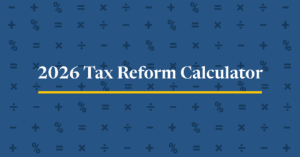
Unless Congress acts, Americans are in for a tax hike in 2026.
3 min read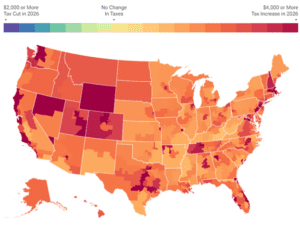
At the end of 2025, the individual tax provisions in the Tax Cuts and Jobs Act (TCJA) expire all at once. Without congressional action, most taxpayers will see a notable tax increase relative to current policy in 2026.
4 min read
Explore the IRS inflation-adjusted 2024 tax brackets, for which taxpayers will file tax returns in early 2025.
4 min read
The 2021 tax year was the fourth since the Tax Cuts and Jobs Act (TCJA) made many significant, but temporary, changes to the individual income tax code to lower tax rates, widen brackets, increase the standard deduction and child tax credit, and more.
9 min read
How do current federal individual income tax rates and brackets compare historically?
1 min read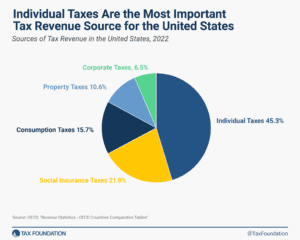
Different taxes have different economic effects, so policymakers should always consider how tax revenue is raised and not just how much is raised.
3 min read
Different taxes have different economic effects, so policymakers should always consider how tax revenue is raised and not just how much is raised.
3 min read
The 2021 tax year was the fourth since the Tax Cuts and Jobs Act (TCJA) made many significant, but temporary, changes to the individual income tax code to lower tax rates, widen brackets, increase the standard deduction and child tax credit, and more.
9 min read
Unless Congress acts, Americans are in for a tax hike in 2026.
3 min read
Explore the IRS inflation-adjusted 2024 tax brackets, for which taxpayers will file tax returns in early 2025.
4 min read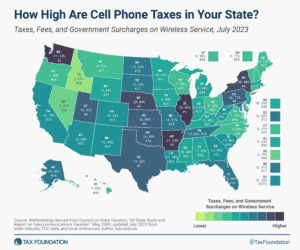
To alleviate the regressive impact on wireless consumers, states should examine their existing communications tax structures and consider policies that transition their tax systems away from narrowly based wireless taxes and toward broad-based tax sources.
18 min read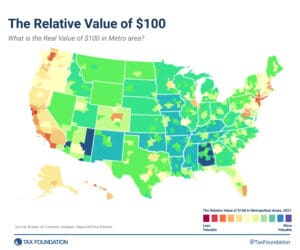
The differences in purchasing power can be large and they have significant implications for the relative impact of economic and tax policies across the United States.
3 min read